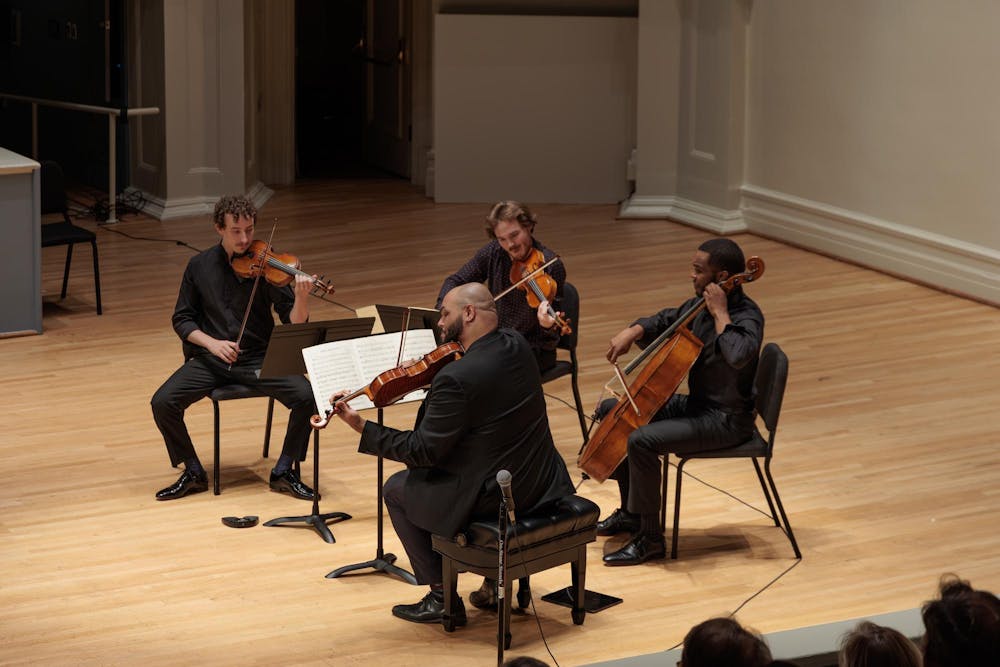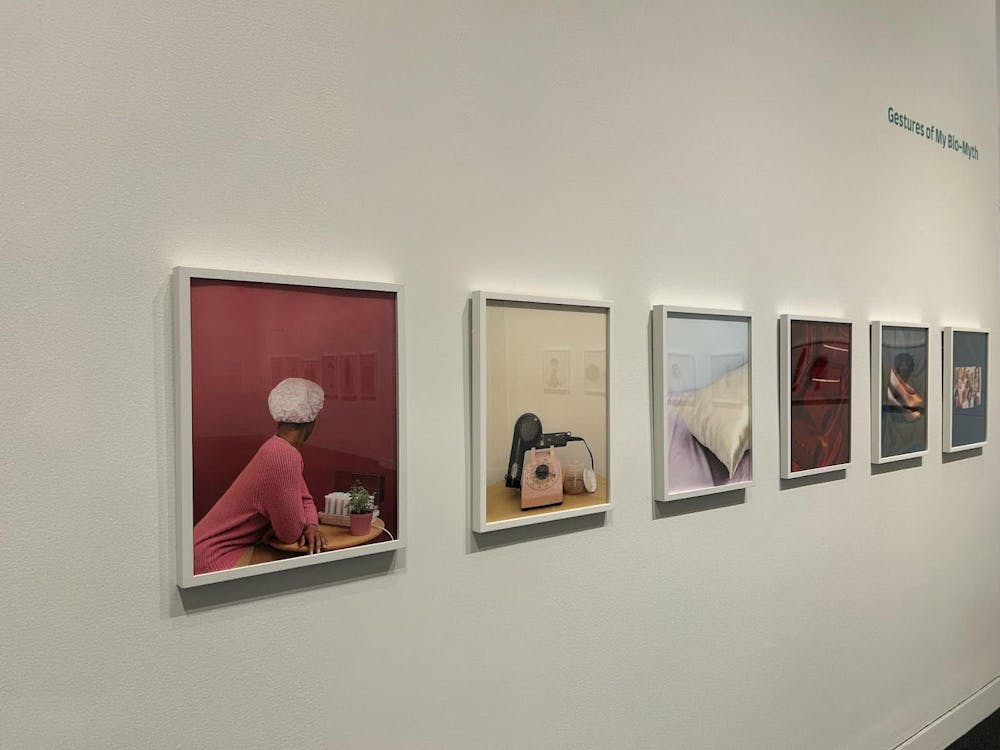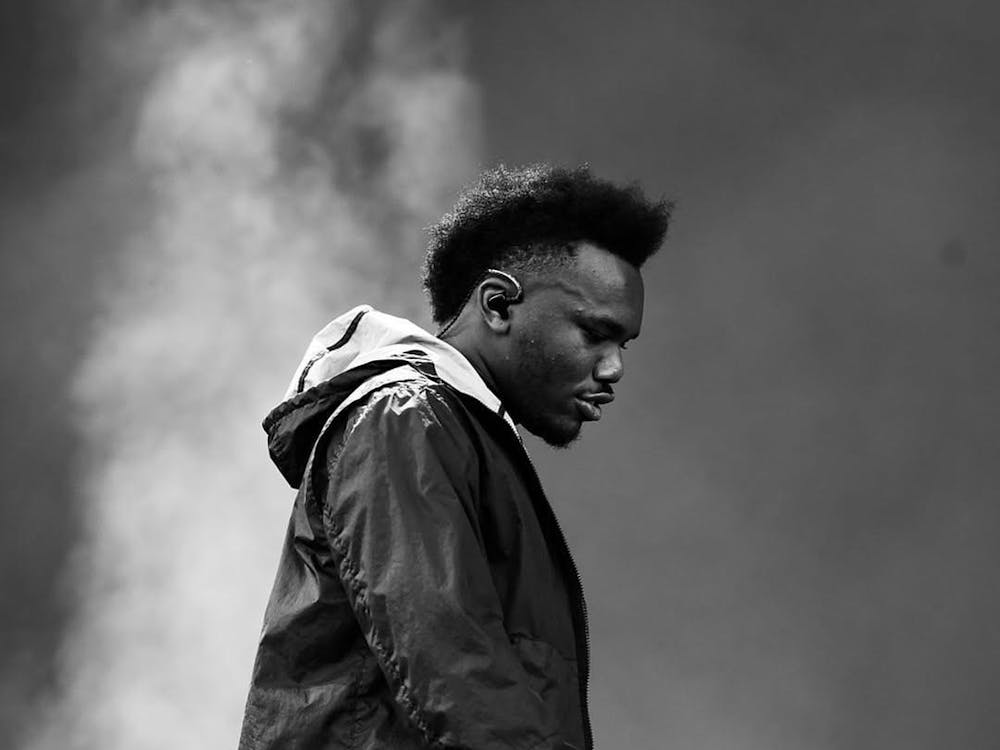The Isidore String Quartet filled the air with a kind of warmth that only live performance can offer inside Old Cabell Hall on a slightly muggy Tuesday evening. Hosted by the 75-year-old Tuesday Evening Concert Series, the concert featured the New York-based ensemble who formed at The Juilliard School in 2019. Winners of the Avery Fisher Career Grant and the 14th Banff International String Quartet Competition, the Isidore String Quartet brought a program that bridged eras, with works spanning from the Classical to late-Romantic periods.
Founded as a University-affiliated series and now an independent 501(c)(3) nonprofit, the Series continues to link the University with the broader Charlottesville music scene through classical chamber music concerts that showcase both international ensembles and more local artistry.
Echoing that spirit, Isidore String Quartet violist Devin Moore said the quartet’s guiding mission is to create playful and innovative performances that bridge old experiences with fresh new takes. Moore reflected on performing at Old Cabell and what it felt like to create a relationship between the performers and listeners.
“It was really amazing to be in this space, not only because the acoustics are really amazing … but the history behind this hall and the audience, you could tell the audience is incredibly invested in chamber music,” Moore said.
The Isidore String Quartet played three pieces Tuesday, and the program itself illustrated dialogue between past and present through subtle choices in pacing, articulation and ensemble blend that cast well-known works in a refreshed light. The four musicians — Moore, violinists Adrian Steele and Phoenix Avalon and cellist Joshua McClendon — approached each piece with clarity and precision, emphasizing the stylistic contrasts among the composers while maintaining a cohesive, unified sound throughout the performance.
Opening with Joseph Haydn’s “String Quartet in B-flat Major, Op. 76, No. 4, ‘Sunrise,’” the group captured the gentle optimism of the work’s nickname, letting the first violin rise gradually, followed by an almost whispered accompaniment. The group turned what is often performed as celebratory into something more introspective. Their phrasing was airy yet deliberate, with subtle dynamic swells that made the music feel alive rather than antique.
Next came Johannes Brahms’s “String Quartet No. 3 in B-flat Major, Op. 67,” with its earthy warmth that contrasted Haydn’s elegance. The Isidore players leaned into Brahms’ rhythmic interplay, making the second movement’s rustic dance pulse with energy. The ensemble’s communication, unspoken cues from years of collaboration, made their sound elastic and human. At moments, the players’ rhythmic drive felt almost percussive, bringing out Brahms’ folk influences with a modern lightness.
The night closed with Antonín Dvořák’s “String Quartet No. 13 in G Major, Op. 106,” a work brimming with Bohemian folk vitality. Here, the quartet played with exuberant confidence, allowing Dvořák’s melodies to bloom into full color while maintaining precise balance. The overarching tone of the piece fluctuates, with darker, slower notes eventually giving way to quick-paced, lively sections. Yet, be it during the busiest or most silent moments, every instrument in the quartet was articulate.
Interim University President Paul Mahoney was in attendance Tuesday. He has attended the concerts for 35 years with his wife and spoke highly of the quartet’s performance.
“I think this quartet is just magnificent, and I love the program,” Mahoney said. “It’s just wonderful to see world-class musicians come to Charlottesville and perform some of the most beautiful music ever written.”
This sentiment echoes the very mission of the Tuesday Evening Concert Series — to keep chamber music alive through shared experience.
David Baldwin, executive director of the Tuesday Evening Concert Series, explained that the Series has long emphasized musical diversity within classical performance.
“String quartets, piano trios, vocal music, choral music, we try to do a balance of all of those things within the confines of chamber music,” Baldwin said.
Baldwin attributes much of the vitality of the Series to the community. He hopes that students continue to take advantage of the free admission offered through the University, emphasizing that these concerts can serve as more than just entertainment and open students’ eyes to musical culture and understanding.
“A lot of other presenters around the country are having a hard time filling halls … and that is not a problem of ours,” Baldwin said. “The enthusiasm of the audience and the U.Va community, as well as the larger Charlottesville community, has been extremely supportive.”
That very dedication to accessibility of good, live, classical music has helped cultivate generations of loyal attendees. Charlene Sedgwick, a former professor of English who has attended the series since 1963, recalled past musicians she has seen, including Yo-Yo Ma. For Sedgwick and many others who have been attending for years, the concerts are as much a social ritual as an artistic one.
“We used to sit [in the back of the auditorium],” Sedgwick said. “The acoustics were wonderful, so all of us who knew each other would come and socialize.”
The Tuesday Evening Concert Series has programming running nearly every month through April, and all concerts are held at 7:30 pm in Old Cabell Hall. Upcoming programming and ticketing can be found on their website.







